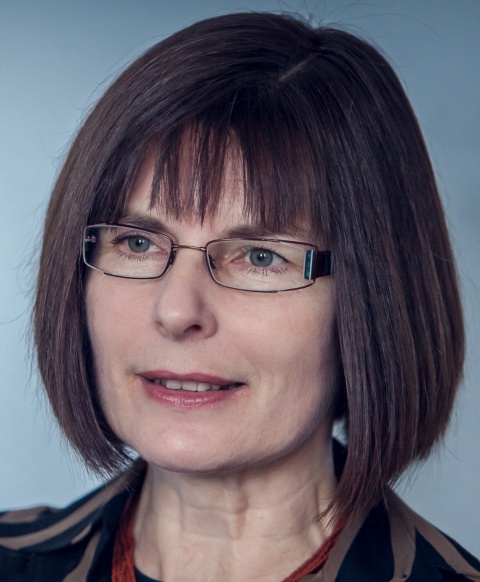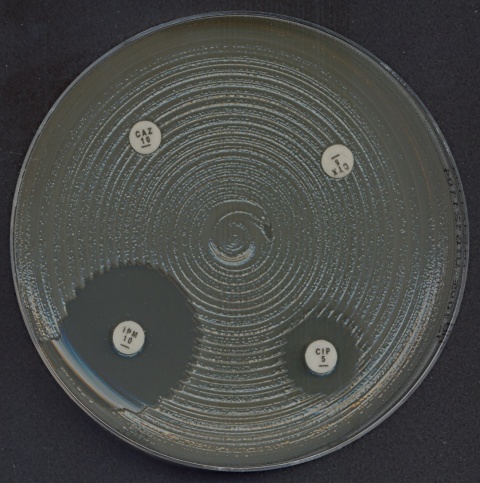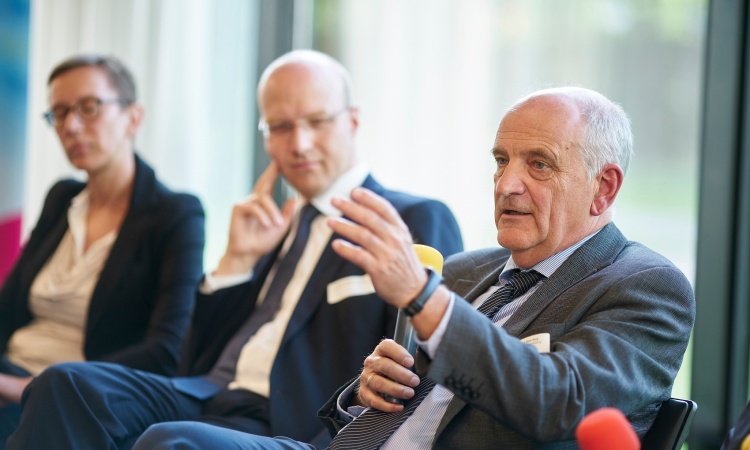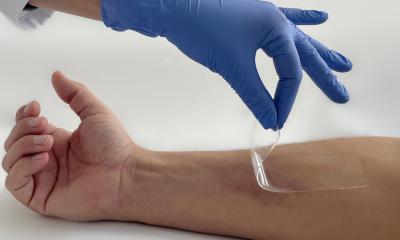Article • Politics
Antimicrobial resistance: reaching out to the UN
A global spotlight has at last highlighted the truly acute problem of antimicrobial resistance.
Report: Michael Krassnitzer

‘At the moment there are lots of political initiatives and a willingness to change,’ reports Dr Ursula Theuretzbacher, Head of the Centre for Anti-Infective Agents (CEFAIA) in Vienna, one of the organisers of the Congress of the European Society of Clinical Microbiology and Infectious Diseases (ESCMID) and the American Society for Microbiology (ASM), held in the Austrian capital (21-23 September: ‘Drug Development to Meet the Challenge of Antimicrobial Resistance’).
Simultaneously (21 September) a high level meeting on the subject of antimicrobial resistance was held in New York during the United Nations General Assembly. ‘This was only the fourth time in the history of the United Nations that a health issue was discussed on this level,’ Theuretzbacher emphasises. Decision makers have now heard what doctors have repeatedly warned – that they will increasingly face situations where they have no treatment options left, and where patients will be at higher risk of dying from infections.
Theuretzbacher has encountered the political will to introduce measures against the spreading antimicrobial resistance in many countries. ‘Only a whole package of measures will provide a remedy,’ emphasises the CEFAIA leader. This includes infection control, antimicrobial stewardship, i.e. the selective use of antibiotics in those cases where this is actually necessary, the expansion, or creation respectively, of surveillance systems recording the impact of resistance in the individual countries, the reduction of the use of antibiotics in animal breeding, the avoidance of environmental pollution – and the development of new antibiotics.
‘At the moment there are mainly improvements to well-known classes of antibiotics in the pipeline,’ Theuretzbacher says. ‘But, there is a need to develop completely new antibiotics.’ There are several reasons for this, as the Austrian microbiologist explains: Firstly, it is difficult to find new substances from a purely scientific point of view, especially against gram-negative bacteria. Their cell walls are so complex that it is very difficult for substances to break through them – and when they do they are quickly pumped out again. Most large pharmaceutical companies have also actually withdrawn from the development of antibiotics. ‘The development of new antibiotics has been without success for some time, and because it’s not economically attractive, the industry abandoned this sector many years ago. A whole generation of researchers and experience was lost through this process,’ Theuretzbacher points out.

Research is currently mainly carried out in small and medium enterprises (SME) and at universities and state-funded research institutions. ‘SMEs quickly get into trouble when they run out of money. Investors want to see quick success,’ she says, explaining the disadvantages of privately funded research. The conditions for the development of new antibiotics at universities are also anything but ideal. ‘There is,’ she adds, ‘little coordination of research.
The academic researchers focus on fundamental research and good publications – which are also important of course – but are not necessarily concerned whether this results in the actual development of specific new drugs.’
There is a need for better coordination and for the definition of priorities. These requests did not actually fall on deaf ears. The responsible WHO regional office is developing a strategic action plan for the European Union to contain antimicrobial resistance, and these strategic objectives also include national coordination to consolidate the required know-how.
Profile:
Ursula Theuretzbacher PhD is Head of the Centre for Anti-Infective Agents (CEFAIA) in Vienna and President of the International Society for Anti-Infective Pharmacology (ISAP). The microbiologist, who studied at the University of Vienna and the University of Innsbruck, is currently work package leader in the multinational collaborative EU funded project AIDA (Re-developing old antibiotics) and in the multinational public-private partnership project DRIVE-AB (Incentivising antibacterial drug R&D, funded by the EU Innovative Medicines Initiative (IMI), and partner in the IMI project COMBACTE-MAGNET (Developing new molecules against Gram-Negative Infections). She is also founding chairperson of ESCMID (the European Society of Clinical Microbiology and Infectious Diseases) PK/PD of Anti-Infectives Study Group (EPASG), chair of a policy and scientific study group of the International Society of Chemotherapy (ISC), and member of the Executive Committee of the International Society of Infectious Diseases (ISID).
27.10.2016











